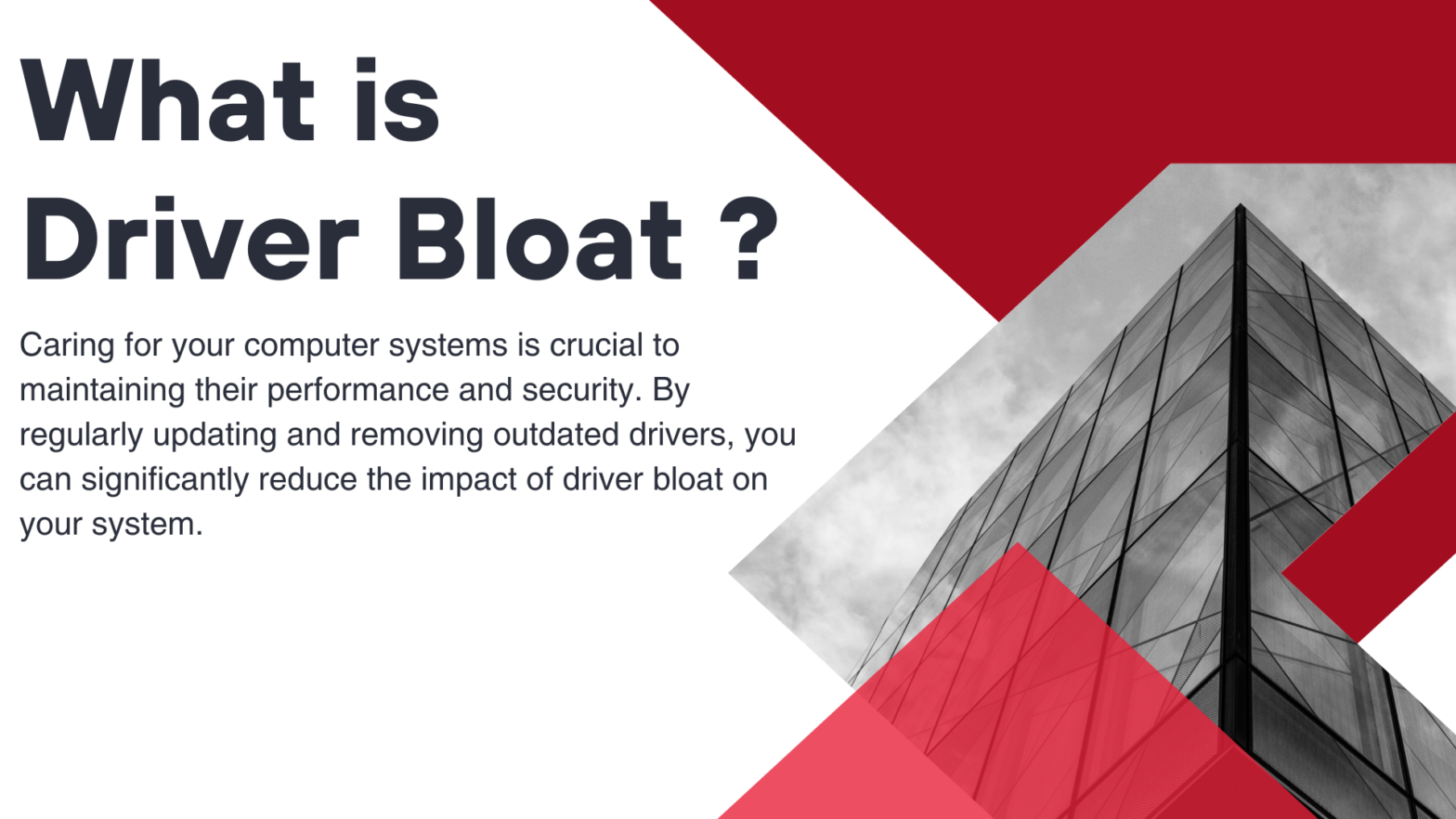We understand the importance of keeping your computer systems up-to-date and functioning smoothly. In this blog post, we want to offer some valuable insights and tips on maintaining and caring for your computer systems to ensure optimal performance and security.

Understanding Driver Bloat and its Impact on System Performance
Drivers are essential to your computer system, facilitating communication between your hardware components and the operating system. However, over time, your system may accumulate unnecessary or outdated drivers, leading to what is known as “driver bloat.” This can negatively impact your system’s performance, cause compatibility issues, and even increase security risks. To ensure your computer runs smoothly and securely, it is crucial to regularly update and remove outdated drivers.
Reducing Driver Bloat
Steps to Follow:
- Identify Outdated Drivers: To keep your computer running efficiently, it’s important to identify and remove outdated drivers. You can use built-in tools like Device Manager in Windows or third-party software like Driver Booster to check for outdated drivers.
- Uninstall Unused Hardware Drivers: If you’ve removed a hardware component from your system or stopped using it, uninstall the associated driver. This can be done through the Device Manager by right-clicking on the device and selecting “Uninstall device.”
- Update Drivers Regularly: Ensure you update your drivers regularly to benefit from performance improvements, bug fixes, and enhanced security. You can do this manually by visiting the manufacturer’s website or using third-party tools that automatically update your drivers.
- Backup Your Drivers: Creating a backup is always a good idea before making any changes to your drivers. This allows you to restore your drivers to their previous state in case of any issues. You can use built-in tools like Windows System Restore or third-party software to create a backup of your drivers.
- Perform Regular System Maintenance: In addition to updating and removing outdated drivers, it’s essential to perform regular system maintenance. This includes tasks like disk cleanup, disk defragmentation, and regular antivirus scans to keep your computer running smoothly and securely.
Conclusion
Caring for your computer systems is crucial to maintaining their performance and security. By regularly updating and removing outdated drivers, you can significantly reduce the impact of driver bloat on your system. Remember, we are always here to assist you with questions or concerns about your computer systems. Don’t hesitate to contact our expert team for guidance and support.
